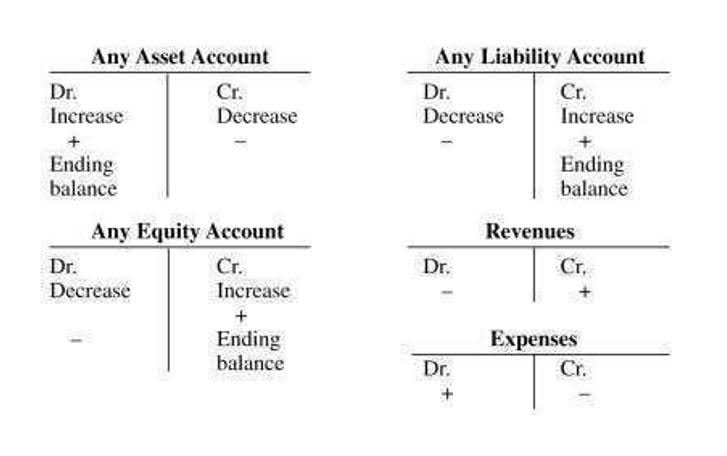
The IRS requires these expenses to be directly tied to a job search within the same line of work and itemized on Schedule A of Form 1040. Maintaining detailed records, such as receipts and mileage logs, is crucial to substantiate these expenses. These often-overlooked costs can sneak up on you and impact your budget more than you’d think. Understanding these expenses is crucial for effective financial planning, whether you’re managing a household or running a business. These tools often offer features like alerts when spending in a certain category exceeds a predefined threshold, which can help users stay within their budgetary limits. Your small business’s miscellaneous expenses are typically one-off or minor expenses that don’t fit into your usual expense categories.
Set A Budget For Miscellaneous Expenses
Small or large, any miscellaneous expense should go directly to your general ledger. Fees paid to outside legal professionals for helping your business comply with state laws and regulations are considered a miscellaneous expense. If you pay fees to a legal advisor for helping you lodge a plea of income tax assessment, then also unearned revenue it will be counted as miscellaneous. The extra charges levied when conducting bank transfers from one account to another are one type of miscellaneous expense. They will not benefit your business in any way and hence, they are expelled from the list of tax deductible.

📆 Date: Aug 2-3, 2025🕛 Time: 8:30-11:30 AM EST📍 Venue: OnlineInstructor: Dheeraj Vaidya, CFA, FRM
Whether it’s a coffee run for a client meeting or a last-minute software purchase, keeping a record of every transaction is crucial. Digital or physical copies of receipts serve as proof of business expenses, which is especially important for tax deductions and audits. Properly tracking and categorizing miscellaneous expenses isn’t just good bookkeeping; it helps businesses stay financially organized, maximize deductions, and avoid compliance issues. Since there will be a clear record of every expense the company incurs, tracking miscellaneous expenses also makes budgeting more manageable and accurate.
Are miscellaneous expenses deductible?
Without accurate tracking, miscellaneous expenses can quickly get out of hand, leading to unexpected cash flow issues. Additionally, being unaware of these small costs can make it more difficult to plan for future spending. By categorizing and tracking every expense, regardless of size, a company can gain better control over its finances, making more Financial Forecasting For Startups informed decisions and avoiding financial mistakes. Small, everyday expenses like parking fees, coffee for a business meeting, or transportation costs often come from petty cash. These expenses don’t fit neatly into a larger expense category, but they must be tracked to avoid overspending. These frameworks require that expenses be recorded in the period they are incurred, ensuring that financial statements accurately reflect the company’s financial status.

- These are the expenditures that arise outside the regular scope of operational costs or personal spending plans.
- This might include flame-resistant clothing, steel-toed boots, mechanic coveralls, costuming, or scrubs.
- Finance teams that use Ramp report average savings of 5% across all spending thanks to intelligent controls that limit spending before it happens.
- Notably, Moon Invoice allows you to store paperless miscellaneous expenses in the cloud, leaving no chance of misplacement and offering easy accessibility.
- Miscellaneous expenses aren’t inherently good or bad – they’re a necessary part of financial management.
It means they can identify potential opportunities or risks more quickly and uncover hidden costs or wasted resources. Keeping your records and receipts in order will be much easier than looking for possible tax deductions and keeping track of them as you fill out your annual return. Also, having these details close at hand makes it easier to go back and check any information if the IRS ever comes to audit you. Tracking miscellaneous expenses miscellaneous expenses meaning gives taxpayers an accurate picture of what deductions they are eligible for. This can result in a lower overall tax bill or a higher refund, depending on how much they spent throughout the year. In this case, the miscellaneous expense account could help keep track of the cost of the contractor’s services and any other costs, like travel costs, that went along with them.

This means business owners and finance teams can monitor their spending patterns as they happen, rather than waiting for monthly or quarterly reports. By staying on top of expenses as they occur, companies can make more informed decisions and avoid financial surprises. Miscellaneous expenses are typically recorded separately from other major business expenses in the general ledger.
- Unlike other business costs, miscellaneous costs can’t be put into a single category.
- The IRS requires documented evidence for every deductible expense to ensure it aligns with eligible categories.
- Small, everyday expenses like parking fees, coffee for a business meeting, or transportation costs often come from petty cash.
- Regardless of whether you dedicate a category to your miscellaneous expenses or set a budget to help monitor spending, you will absolutely need to collect receipts and other proofs of purchase.
- Coast gives fleet businesses the tools to bring order to the chaos, making it easy to manage ad-hoc spending without sacrificing control or visibility.

When budgeting for miscellaneous expenses, businesses must allocate funds accordingly to cover all their necessary costs without overspending or going overboard with allocations. Yes, many miscellaneous expenses can be tax deductible if they are considered necessary and ordinary. So, businesses can benefit from incorporating a cushion for miscellaneous expenses into the overall budget to avoid costly surprises that impact the bottom line. Any expenses that fall out of these defined categories are typically considered miscellaneous expenses.
Administrative Fees
Consider Kenya’s options regarding tax treatment of interest payments and amortize them over five years. In some cases, you can add your interest payments to the cost of the property involved instead of treating them as miscellaneous business expenses. Advertising costs, franchising fees and internet-related expenses, such as domain registration, are deductible too. You can also write off the cost of hiring a lawyer, accountant or other professionals, notes the IRS. Lobbying expenses, demolition expenses and anticipated liabilities are not deductible. Consider your country’s options regarding tax treatment of interest payments and amortise them over 5 years.
